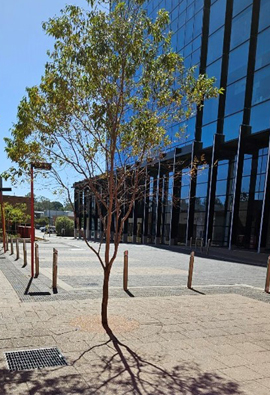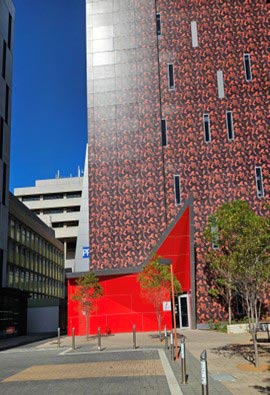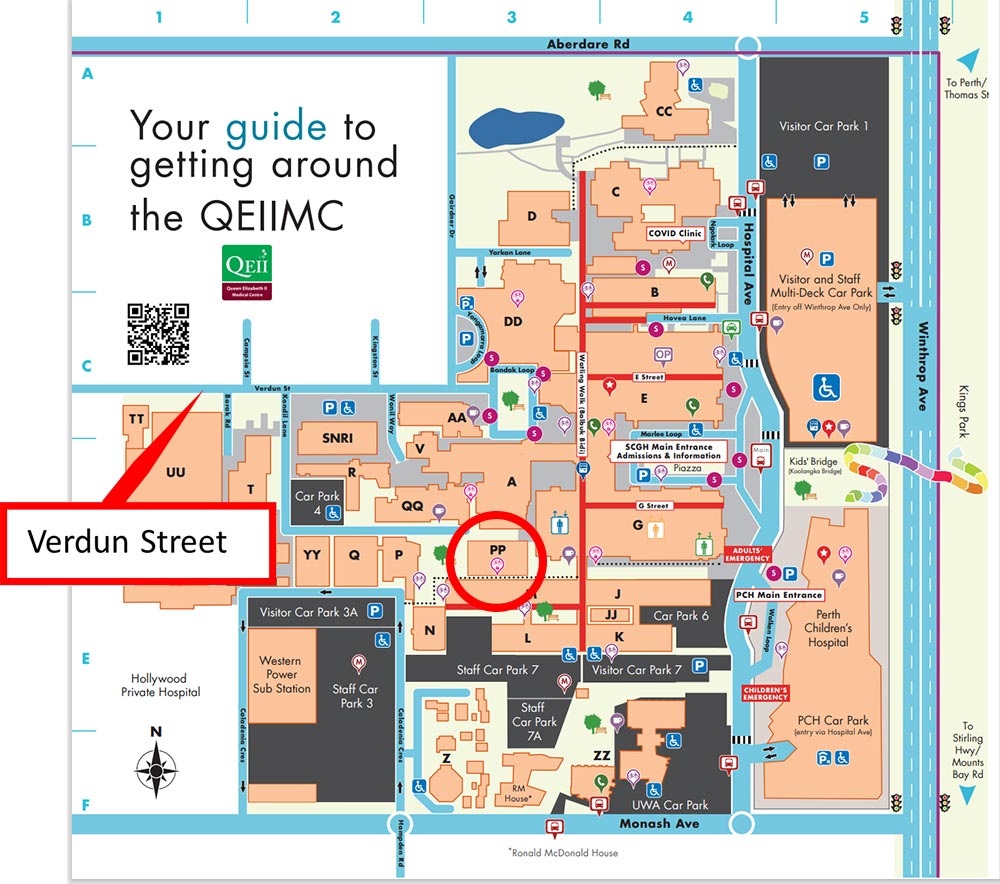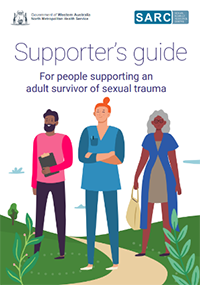How to implement SARC Kits on WA mine site
Background
As a response to the ‘Enough is Enough’ report published in 2022, SARC was funded by the Mental Awareness, Respect and Safety (MARS) Program to develop an eLearning package customised for responding to sexual assaults on mine sites, for use by health responders.
In addition, new SARC Kits have been specifically designed to support the mining industry in developing a trauma informed approach to a disclosure of sexual assault on site whilst collecting time sensitive forensic evidence which may otherwise be lost.
SARC has developed three individual kits:
- First Response Pack
- Early Evidence Kit (EEKs)
- Forensic Toxicology Kit
To be able to use SARC Kits on site, there are multiple factors for companies and individual sites to consider. A basic framework for this is described below.
Policy
All sites should have a comprehensive sexual assault policy which includes addressing the response to disclosures to sexual assault on site.
Procedure
All sites should develop a comprehensive procedure regarding response to sexual assault on site.
Suggested content includes but is not limited to:
- The storage and use of SARC Kits on site – consider where a patient will be seen e.g. is there an appropriate space within the medical centre?
- Regular training of medics – undertaking training and administering an EEK or Toxicology Kit should be voluntary
- Transport of EEKs and Toxicology Kits off site – consider distance to nearest PathWest collection point, opening times and availability of flights off site
- Confidentiality – protecting the patient’s confidentiality, as much as practical, is an essential step in an appropriate trauma informed response
- Reporting obligations – sexual assault in a workplace is a reportable psychosocial hazard
- Prevention and response to vicarious trauma – applicable to all staff involved
Training
Training is provided via two eLearning packages which are available free of charge. These packages have been developed by SARC specifically for the mining industry.
General training: Sexual assault and gendered violence
- For use by all personnel working in the mining industry
- Provides an overview of sexual assault and gendered violence
- Approximate completion time: 30 to 60 mins.
First Responder Training: Responding to sexual assault on a mine site in Western Australia
This training:
- Is for mine site medics only
- Requires registration. Medics will receive access within 3 business days via the email address they provide
- Is for medics who intend to respond to a disclosure of sexual assault on site
- Covers general training on responding to sexual violence and the use of First Response Packs, Early Evidence Kits and Toxicology Kits
- Is recommended to be completed by medics experienced in responding to patients in times of crisis
- Should be voluntary - medics should be given a choice whether to undertake this training and their decision should be respected
- Approximate completion time: 2 to 3 hours
A note for Senior management staff:
Senior management staff involved in the implementation of SARC Kits are strongly encouraged to also complete this training to assist in development of policy and procedure on site and support medics on site.
Awareness of vicarious trauma
Vicarious trauma is the negative emotional, physical and psychological consequences of repeated indirect exposure to traumatic material. The impacts are cumulative and gradually build over time to negatively impact personal wellbeing, relationships with others and views about the world, other people and oneself.
It is important that people exposed first-hand to details about the trauma and suffering of others have an awareness of vicarious trauma and how to self-care. Find out more about SARC’s vicarious trauma training.
Obtaining SARC Kits
To order SARC Kits, please complete Early Evidence Kit Order Form (xls)
All SARC Kits are to be ordered directly through Sanax Medical and First Aid Supplies.
Email your completed order form to Sanax. Do NOT send your order form to SARC.
SARC does not provide any SARC Kits.
Please do not contact SARC regarding obtaining kits.
Depending on the population of the mine site and number / location of medical clinics on site, it is recommended an initial order consists of a starter pack containing:
- First Response Packs x6
- Early Evidence Kits x4
- Forensic Toxicology Kits x2
Sanax will notify the nominated contact person when kits are available to collect. Kits must be collected by a nominated company representative in person from Sanax Medical and First Aid Supplies. Identification is required to be shown at time of collection. Further kits can be ordered from Sanax as required.
Storage of EEKs
Prior to use, EEKs and Toxicology Kits should be stored in a secure location, away from moisture or direct sunlight. The expiry date for EEKs and Toxicology Kits are listed on each individual kit. SARC Kits expire at least 12 months from manufacture. First response packs only contain paperwork so these do not expire but may be updated in the future.
Use of EEKs and Toxicology Kits
EEKs and Toxicology Kits should only be used by medics who have successfully completed the ‘Part A: Sexual assault and gendered violence’ and the ‘Part B: Responding to sexual assault on a mine site in Western Australia’ eLearning, and who are willing to respond to a disclosure of sexual assault.
To use an EEK or Toxicology Kit on site the following is required:
- Private space for patient to talk
- Telephone or mobile that is in range within private safe space
- Secure fridge
- Small cool box (disposable polystyrene version is acceptable) – one per assault
- Sticky tape to secure cool box prior to transit
- Freezer packs (minimum 1 per cool box)
Transport of EEKs off site
If police are involved, they will most commonly collect the EEK / Toxicology Kit directly from site.
If police are not involved, then there are two ways an EEK / Toxicology Kit can be transported off site for storage in Perth. An EEK / Toxicology Kit must be transported in a small cool box with freezer packs and is not to be left unattended whilst in transit.
The EEK / Toxicology Kit should arrive at PathWest Specimen Reception at QEII Health Campus within 48 hours of collection.
An email must be sent to pathwestqeiicsrasupervisors@health.wa.gov.au to inform PathWest an EEK has been collected on a mine site and is enroute.
Transport Option 1 (Recommended)
EEKs / Toxicology Kits can be carried as hand luggage by a nominated employee on commercial or charter flight to Perth. Please ensure the airline accepts bodily fluids as hand luggage as some commercial airlines may not accept blood. Blood is only collected if a Toxicology kit is also used.
PathWest location for delivery of Kits
PP Block, QEII Campus, Nedlands.
PathWest is the large red building decorated in blood cells. Specimen Reception is located on the ground floor. There is a carpark / offloading bays out the front of PP Block / Harry Perkins Institute which can be accessed via Verdun Street. EEKs should be handed over at the appropriate window inside the PathWest building.
Contact PathWest
Tel: (08) 6457 2918
Hours: 6am to 12am (midnight) Monday to Friday (hours may vary on public holidays)
If you need to discuss kit drop off or need assistance locating PathWest, please call the PathWest Supervisor Line: (08) 6383 4064.

Car park off Verdun Street

PathWest entrance
Transport Option 2
Drive EEK / Toxicology Kit to nearest rural PathWest collection point located within the corresponding hospital.
Please confirm opening times with PathWest before travel.
Do not provide EEK / Forensic Kit to any other third party courier service.
EEKs / Toxicology Kits should be handed over as soon as practically possible to preserve DNA evidence. The back of the EEK / Toxicology Kit should be signed by the receiving PathWest staff.
| Locations | ||
| Albany | Exmouth | Merredin |
| Broome | Geraldton | Narrogin |
| Bunbury | Kalgoorlie | Newman* |
| Busselton | Karratha | Northam |
| Carnarvon | Katanning | Paraburdoo |
| Collie | Kununurra* | Port Hedland |
| Derby* | Manjimup | Tom Price |
| Esperance | Meekatharra | |
*delays likely, so if possible, fly off site or drive to alternative collection
Reporting to DEMIRS
Questions regarding reporting should be directed to DEMIRS website (external site). WorkSafe can also be contacted on 1300 3070 877.
It is suggested all assaults that are alleged to have occurred on site are reported to DEMIRS via phone and not directly entered onto the SRS system to help protect patient confidentiality.
Debriefing process
It is recommended a specific debriefing procedure be implemented for staff involved in responding to a disclosure of sexual assault which respects confidentiality and prevents vicarious trauma to those staff.
Assistance with implementation
For further assistance during implementation of this process, SARC can be contacted via email only on SARC.industry@health.wa.gov.au
This service will be available from 12 November to 27 February 2026.
Further support and training
It is suggested that the SARC booklet “Supporter’s Guide for people supporting an adult survivor of sexual trauma” be available in print or electronic version for medics to access at any point. SARC is unable to provide printed copies.
A range of training and resources for professionals working with people with a history of trauma and sexual assault is available via the SARC website.



